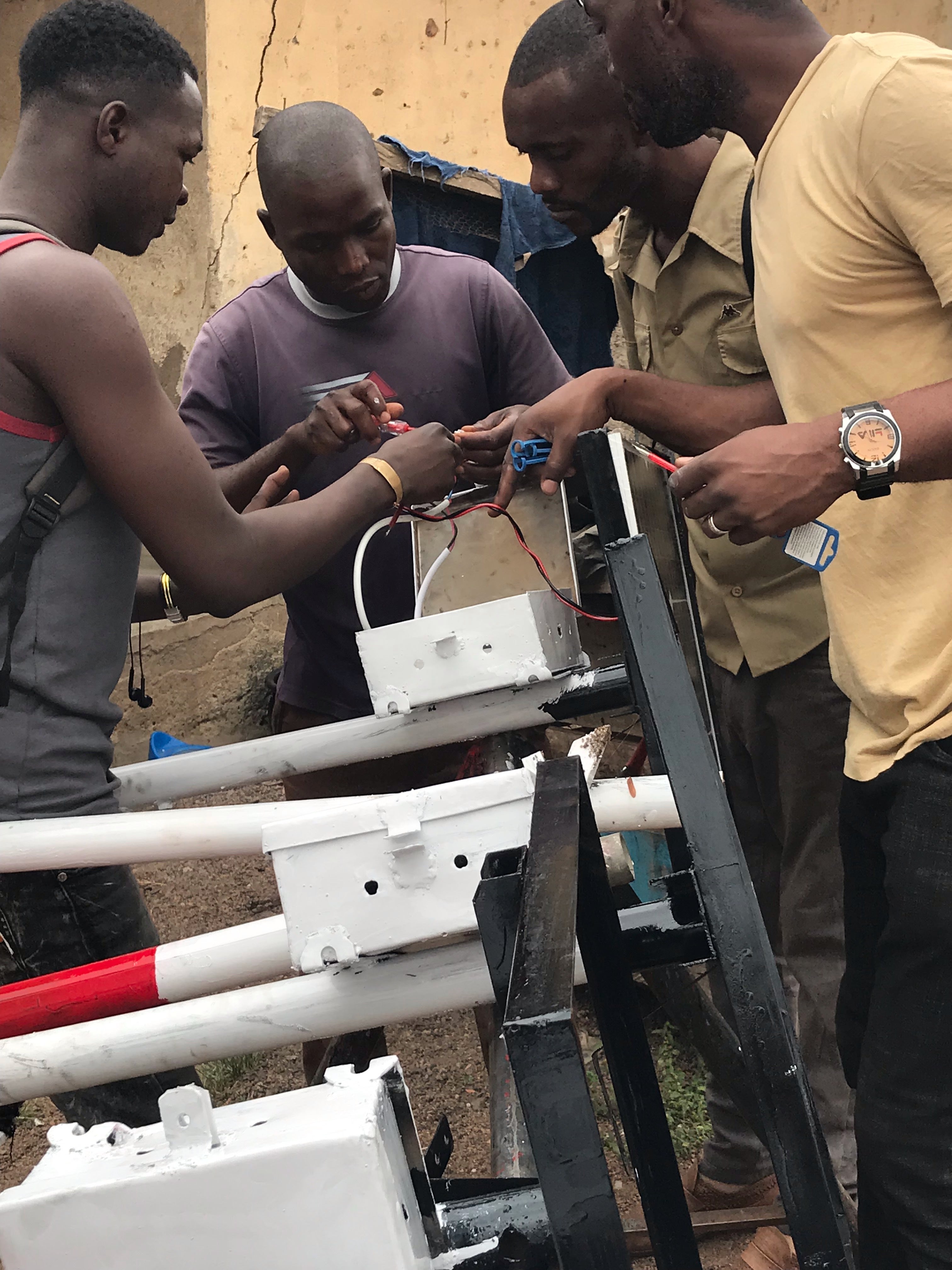A group of young people gather around the flat, dark solar panel. It is made up of photo voltaic cells. This is a solar street light workshop taking place in Conakry, Guinea's capital and largest city. The instructor explains how the voltaic cells convert sunlight into an electrical current that can be stored in a battery to run a street light. The instructor shields the photoreceptor on the light and the light turns on.
Urban youth unemployment is a challenge most countries are grappling with. In Guinea UN-Habitat partnered with the Ministry of City and Territorial Development in Guinea to train one hundred youth on prevention of urban insecurity through the manufacture, assembly, installation and maintenance of photovoltaic solar street lights. The training aims to empower young people by equipping them with practical and marketable photovoltaic skills. The workshops also aim to nurture a culture of civic duty in the youth. It is hoped showing the value of civic citizenship will inspire a behavioural change that can help in fostering sustainable peace in Guinea.
“Reducing urban insecurity by creating job opportunities is a big challenge for our ministry,” acknowledged Secretary General of the Ministry of the City and Territorial Development Mr Mohamed Mamaa Camara. Welcoming the initiative he encouraged the partners to continue working closely together for the benefit of Guinean youth and to ensure sustainable urbanization in Guinea. “This initiative will improve public lighting and help to avoid many crimes and many young people will have access to very important know-how which is a lifetime asset,” he said.
UN-Habitat representative Mr Claude Mentchehé Ngomsi said in addition to participating in training on installing and maintaining photovoltaic street lighting, the workshops also equipped youth with skills to identify the physical factors and individual attitudes that lead to youth delinquency. “They will be trained as peer educators in crime prevention and equipped to contribute actively to reducing incidences of physical assault and theft,” he said.
The project was initiated by UNDP, UNIDO and UN-Habitat, and was supported by the Peace-building Fund. Consultations with community leaders and youth groups resulted in a list of 70 participants from Conakry and 30 from N’Zérékoré. Field visits identified unlit areas in the residential areas, to determine where to place the solar street lights.
UN-Habitat works for a better urban future. Working in over 90 countries, the United Nations programme for human settlements promotes the development of socially and environmentally sustainable human settlements and strives for adequate shelter with better living standards for all. UN-Habitat’s mission is to promote transformative change in cities and human settlements through knowledge, policy advice, technical assistance and collaborative action, leaving no place and no one behind.
